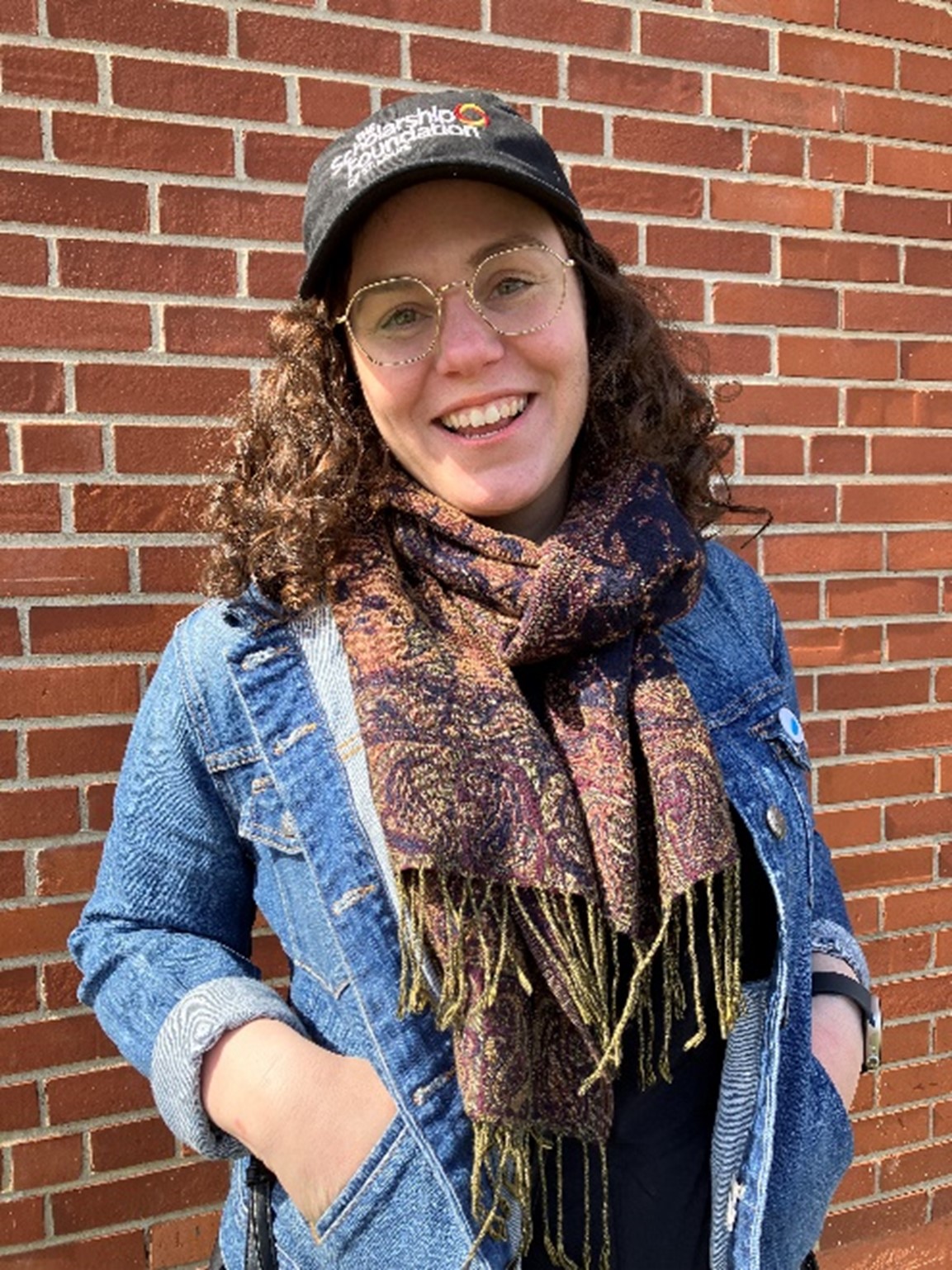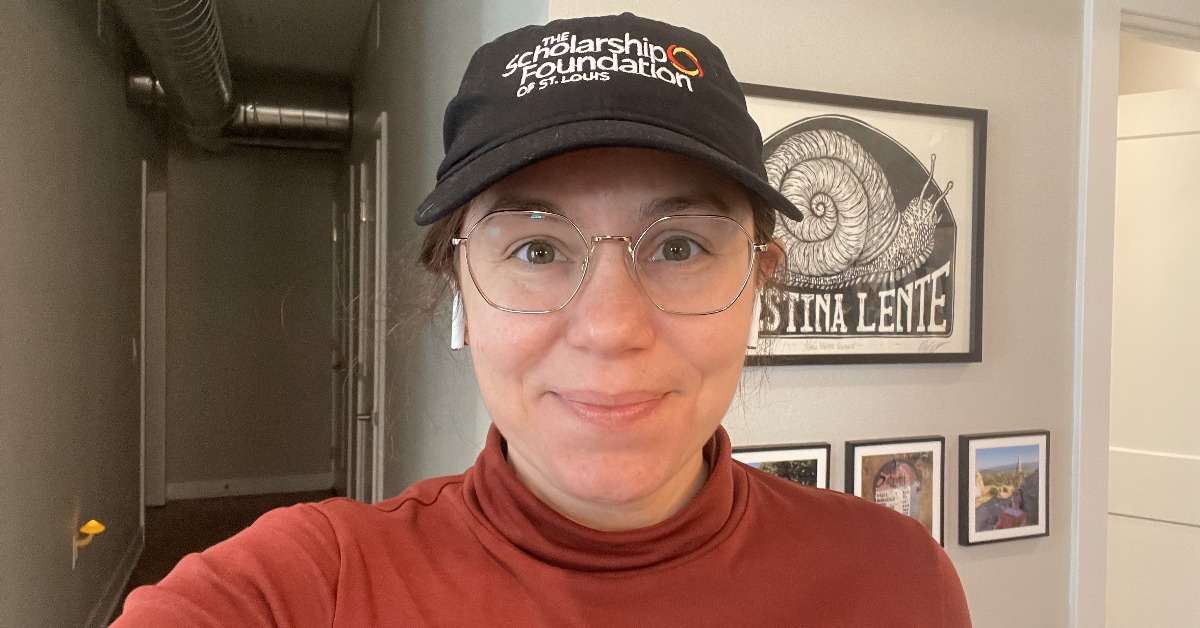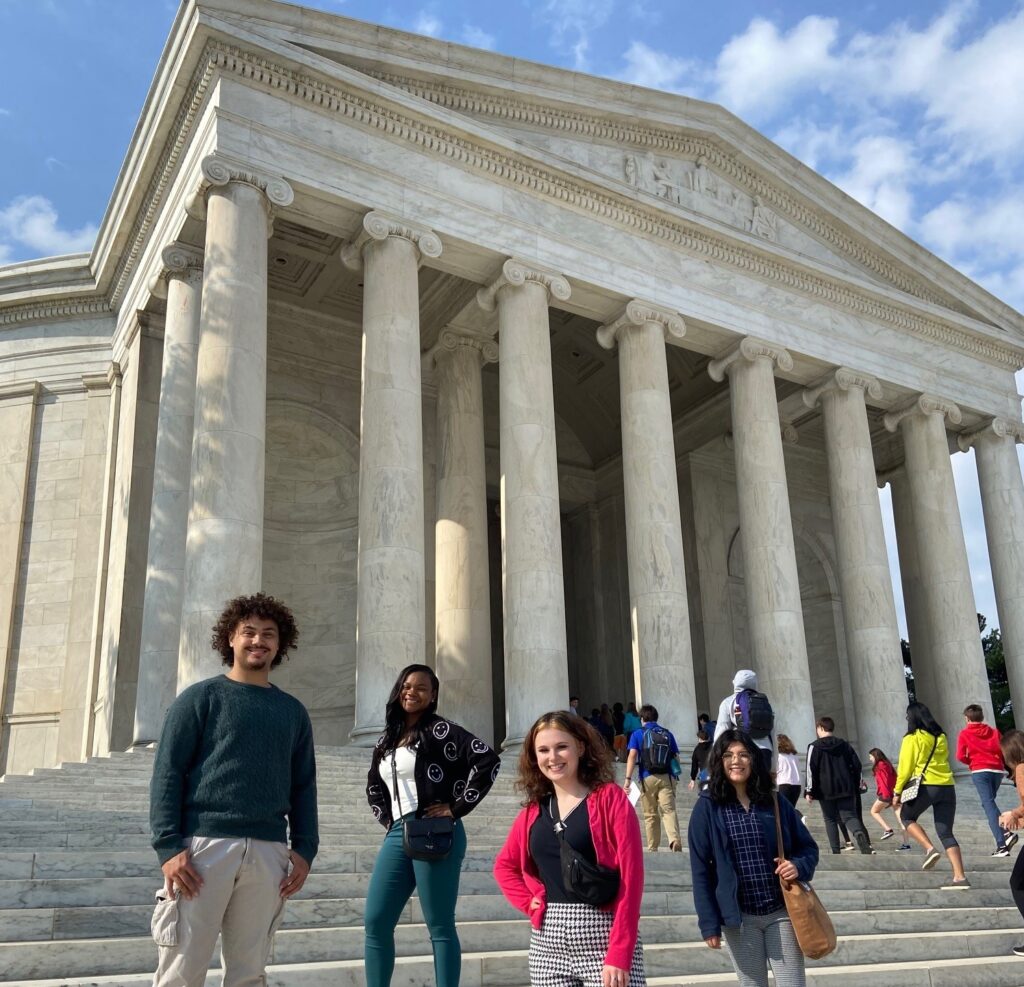 STACY MASSEY
STACY MASSEY
- 2008 Graduated Metro High School and Bayless High School
- 2012 BJ journalism and BA gender studies, University of Missouri
- 2013 Served two years as Communications Coordinator, Night Ministry, Chicago IL
- 2018 Worked four years with Institute for Justice at University of Chicago, promoted to Assistant Director of Operations and Outreach
- 2018 Interest-free loan of $20,250.00 from The Scholarship Foundation repaid-in-full
- 2022 J.D. University of Iowa
- 2023 Law Clerk, Iowa Supreme Court
Among the many things to love about Stacy is that she always has something to say and generally has thought about it first. Stacy and I meet up for a meal or by text or email regularly. She was a guest speaker at the September, 2018 meeting of our board of directors, celebrating the fact she had repaid her interest-free loan in full. In remarks that enlightened and inspired us all, she described how the decisions she made about higher education have put her on a path very different from others in her family.
I met her for breakfast recently and while I inhaled a sopapilla she told me a thing or two about the role student debt continues to play in her life. She has given me permission to share these experiences with you.
Interest-Free
Stacy favors the concept of interest-free loans as national policy. She knows her repayment was less burdensome as a result of The Scholarship Foundation’s interest-free loan program. In hindsight, she reflects that she didn’t defer repayment to continue her education because she felt she “didn’t have that flexibility. I didn’t want to postpone putting money back into the pot. I felt a responsibility to give money back because it wasn’t even earning interest.”
Repayment as Virtue
Because we have often talked about the loan program and Stacy had read a recent blogpost on grants and loans at the Foundation, Stacy remarked quickly, “Yes I paid my loans, but there was nothing virtuous about waiting seven years to go to law school and even longer to have kids or buy a house.”
Constant Factor in Career
Stacy is a pragmatist in her decisions and leans toward libertarian in her politics. Her next career step is completely constrained by the looming $160,000 in interest-bearing loans she had to take for law school. That’s right. Despite attending one of the most affordable well-ranked public law schools in the country, she graduated $160,000 in debt. Though she’d love to consider using her law degree to prosecute mortgage and student loan fraud with a state attorney general’s office, she has currently trained her focus on securing a highly paid position in a private law firm. She knows working at a large, private law firm is her best shot at enjoying a comfortable standard of living while paying a $1,700 monthly loan payment and reaching for other adult milestones, like buying a home and building a family.
Advice to Current Students
I know of no one more capable of adapting and devising creative solutions than Stacy. Over breakfast, she described to me the ways she got essential healthcare without insurance in her adolescent and young adult years. She’s an expert at working an economy largely “off the grid.” She’d like our students to hear this message, “You deserve to have what you need and you shouldn’t feel bad about going to get it. Find ways to outsmart the system that was not designed to serve you.”
Guidance to Board and Donors
At the close of our time together, I asked Stacy what message she would give to those concerned about grants significantly surpassing loans at the Foundation. These are her words:
“I think the grants are awesome. They give students so much more autonomy when they leave school than loans do. Not only will grants improve their career options, but they will also make it possible for graduates to reach back and help their families. Repayment on loans can make that impossible.”





